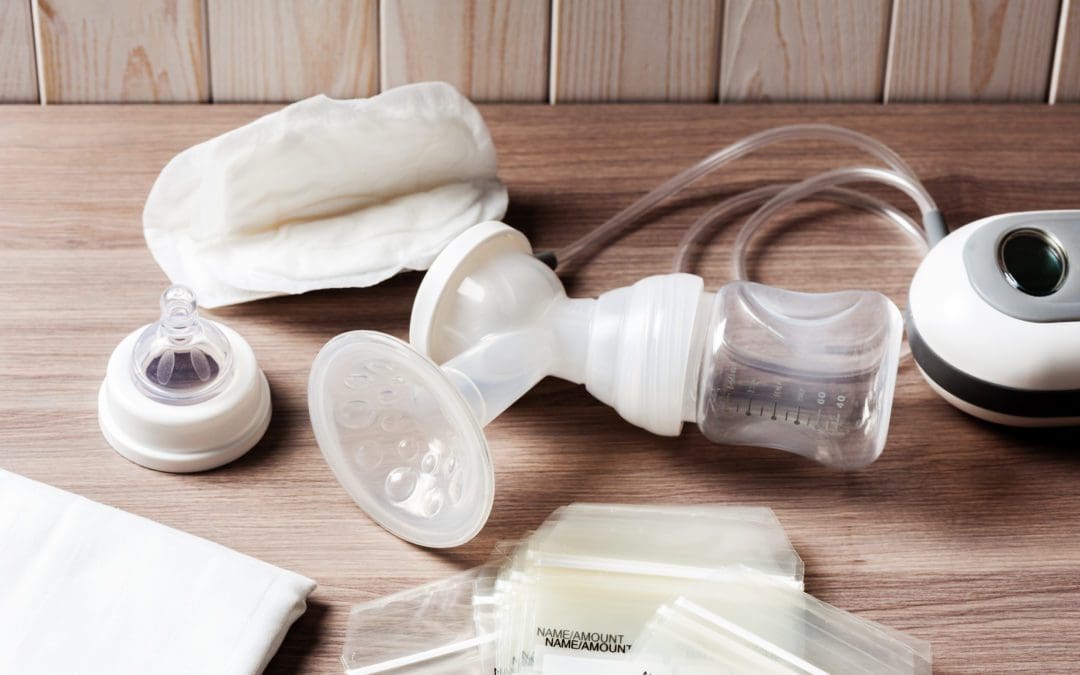The first requirements of the expanded PUMP Act (Providing Urgent Maternal Protections for Nursing Mothers Act), signed into law in December 2022, are now taking effect. What does that mean for your strategic plan?
The PUMP Act supports working mothers who want to pump in the workplace. So organizations with more than 50 employees need to consider scheduling and facility accommodations.
With six out of ten new mothers working and 80% of newborns being breastfed, according to a study by the OASH Office on Women’s Health in the Department of Health and Human Services, leaders need to pay attention to the math.
Here’s what you need to know about the PUMP Act revisions and providing the support nursing moms need.
New PUMP Act Requirements & Provisions
The original PUMP Act builds on the Break Time for Nursing Mothers Act passed in 2010, which required employers to provide reasonable break time for nursing mothers to pump for up to one year after the birth of their child.
The new legislation requires employers to provide a private space, other than a bathroom, shielded from view and free from intrusion. Although, it doesn’t have to be a permanent structure. The Act requires the time and space, but it does not require the employer to pay the employee during these breaks unless you already provide paid breaks.
Understanding the requirements and ensuring compliance with the PUMP Act is especially important, as legal consequences, including penalties and fines, are possible as of April 28, 2023. There are new enforcement provisions that allow employees to file lawsuits for violations. The protections were added to the PUMP Act because as many as 60% of women reported in a 2016 study that their employers did not provide adequate break time and space for pumping or nursing even after the 2010 law was implemented.
PUMP Act Considers More Than Convenience for Nursing Mothers
Companies operating in the private sector, as well as federal, state, and local government, are covered by the PUMP Act; however, some exemptions are built in. Small businesses with fewer than 50 employees are exempt when compliance with the law would impose an undue hardship on their operations. In general, though, if your business is covered by the Fair Labor Standards Act (FLSA), you are likely required to adhere to the PUMP Act provisions
Creating accommodations for lactation is not just a convenience for nursing mothers. It allows for numerous health benefits for the mother and the child. And it is a financial protection as well. One report stated that 74% of breastfeeding discrimination cases cited “economic harm,” and 63% resulted in job loss. Although your organization may have already provided space and time for nursing mothers, not all do. And these changes should help with challenges associated with returning to work.
Your Organizational Plan is Prime for Change
The changes under the PUMP Act may require additional planning on your behalf, depending on what you currently have in place. You’ll want to be prepared to address the following accommodations in your plan:
- Facilities. Nursing mothers must have access to a private space, protected from view and free from intrusion that isn’t a bathroom. Do you have a logical space for them to use, or will you need to create a solution
- Scheduling. Reasonable break time must be provided up to one year after the child’s birth for as often as needed. You already provide breaks for all employees, but coverage for any additional breaks should also be incorporated. For example, during a 12-hour shift, pumping may require four breaks of 15-20 minutes each. Understanding the needs and coverage is critical to success and avoiding potential issues within the team.
- Training and education. While this is not required by the Act, raising awareness about the rights and needs of nursing mothers in the workplace can help create a supportive and inclusive work culture.
Lasting Benefits for Organizations
While complying with the Pump Act may require some initial adjustment and investment, it can have long-term benefits for your organization. Supporting nursing mothers in the workplace can improve company culture, engagement and retention and enhance your company’s reputation as a family-friendly and inclusive employer to attract new talent.
You likely already have organizational goals around employee well-being, work-life balance, and equity. A “people first” focus has been proven to positively impact employee satisfaction and productivity, as well as your overall organizational performance and profitability.
Liddell Consulting Group works with leaders to develop long-term strategic positions that add value to your organization. Our process provides a path for leaders to implement so that employees can own and implement your plan with clarity in times of change and evolving complexities. Contact us to learn more about how we can help and how to get started.
Start Your Journey to Success
We’re ready, are you?
We know that every company has a unique set of challenges. Our perspective can help simplify what needs to be improved and our time-tested methods can provide clear steps toward your performance goals. Contact Liddell today.
